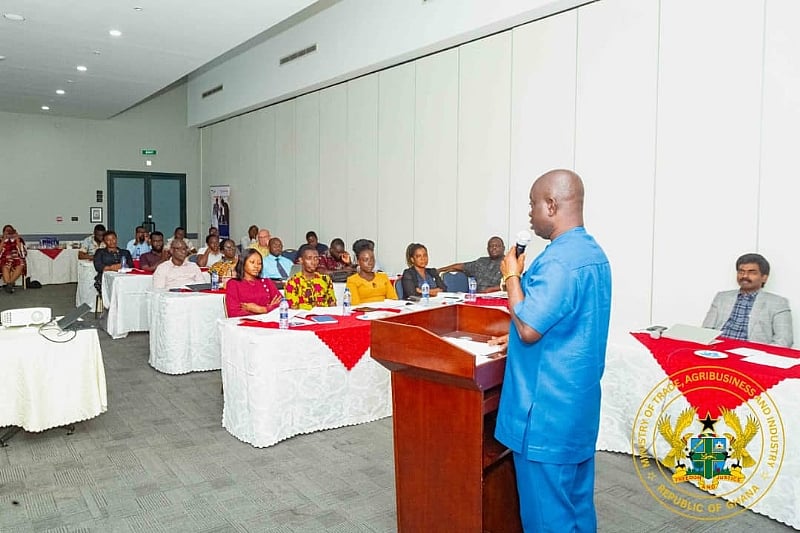Ghana is embarking on a transformative journey into the digital age, marked by the finalization of its first National E-Commerce Strategy. This comprehensive blueprint, developed in collaboration with the United Nations Conference on Trade and Development (UNCTAD), aims to leverage the power of e-commerce to drive inclusive economic growth, empower businesses, and create opportunities for all Ghanaians. The strategy represents a significant milestone, reflecting months of dedicated consultations, research, and collaborative efforts between government, private sector, academia, civil society, and development partners. This initiative underscores Ghana’s commitment to embracing the future of trade and harnessing digital technologies for national development.
The National E-Commerce Strategy is not merely a document; it is a roadmap for action. It outlines clear strategic goals and actionable steps designed to address the challenges and unlock the potential of e-commerce in Ghana. The strategy recognizes the importance of overcoming structural and trade-related barriers, empowering micro, small, and medium-sized enterprises (MSMEs), fostering decent job creation, enhancing social inclusion, and promoting economic diversification through e-commerce. It also emphasizes building trust in the digital space, improving logistics and payment systems, supporting MSMEs’ online presence, and ensuring inclusive access for women and rural communities. This multifaceted approach reflects a commitment to ensuring that the benefits of e-commerce are shared by all Ghanaians.
The development of the National E-Commerce Strategy followed a rigorous and collaborative process. In 2023, the Ministry of Trade, Agribusiness and Industry (MoTAI) requested UNCTAD to conduct an eTrade Readiness Assessment (eT Ready). This assessment, published in November 2023, identified key policy gaps and development opportunities within Ghana’s e-commerce ecosystem. Building on these findings, MoTAI formally requested UNCTAD’s assistance in March 2024 to develop a comprehensive national strategy. This collaborative approach ensured that the resulting strategy is grounded in evidence and tailored to Ghana’s specific context.
The national validation workshop, where the final draft of the strategy was reviewed and endorsed, served as a culmination of months of collaborative effort. This event brought together key stakeholders from across various sectors to ensure a shared vision and ownership of the strategy. The workshop highlighted the importance of inter-ministerial coordination and public-private dialogue in driving the successful implementation of the strategy. The commitment demonstrated by all stakeholders signifies a collective readiness to embrace the future of trade and capitalize on the opportunities presented by the digital economy.
To ensure effective implementation and ongoing monitoring of the National E-Commerce Strategy, a dedicated E-commerce and Digital Trade National Steering Committee is being established. This committee will comprise representatives from the public and private sectors, academia, and civil society organizations. Its mandate will be to guide, monitor, and evaluate the implementation of the strategy, ensuring policy coherence across sectors and fostering ongoing dialogue between stakeholders. This institutional framework will provide the necessary oversight and support for the successful realization of the strategy’s objectives.
UNCTAD’s support for Ghana’s e-commerce journey is part of a broader joint program aimed at leveraging digital ecosystems for increased MSME productivity. This program is jointly implemented with the United Nations Capital Development Fund (UNCDF) and the United Nations Development Programme (UNDP), with coordination from the UN Resident Coordinator’s Office (UNRCO). The program, funded by the Joint SDG Fund Digital Transformation Round (2023), focuses on building national capacity for planning and implementing inclusive e-commerce reforms. This comprehensive approach acknowledges the interconnectedness of various development goals and the importance of a holistic strategy for digital transformation. The consultations leading up to the draft strategy involved national dialogues held in June 2024, followed by extensive stakeholder engagements through October and November 2024. This participatory process not only shaped the content of the strategy but also fostered stronger inter-ministerial coordination and enriched public-private dialogue in Ghana’s digital economy space. The validation of the National E-Commerce Strategy represents a pivotal step in positioning Ghana to capitalize on the opportunities within the global digital economy, ultimately contributing to inclusive and sustainable development.


